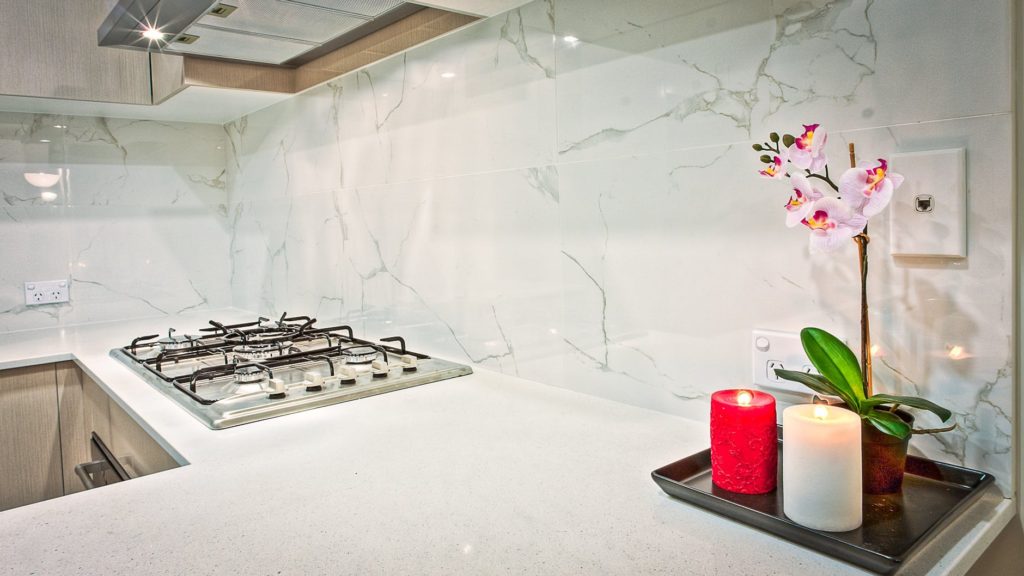Performing electrical work in your home can save you a lot of money and make you feel proud of your DIY accomplishments. But, if not done properly, it can be a very dangerous task.
Violating electrical codes can be hazardous to both your family and your home and can lead to bigger problems in the future. No matter how large or small-scale the project is – it’s still a good idea to follow the electrical code.

There are new additions to the National Electrical Code (NEC), which sets a safety standard for installing, operating, and maintaining electrical power and communication utility systems. The most recent NEC Handbook is hundreds of pages long, with numerous codes, graphs, illustrations, explanations and information you will most likely find really hard to follow.
Here are some of the most common code violations and how to avoid them:
Wrong Circuit Breaker
There are three basic types of circuit breakers; each one has a specific use, and selecting the wrong one can lead to fires and electrical hazards.
Standard circuit breakers protect wiring and equipment, but should only be used for large appliances. They don’t offer reliable protection against fires nor are they great at protecting people.
Ground fault circuit interrupters should be used for small appliances and near water, such as kitchens and bathrooms, outdoor areas, and anywhere else where it’s particularly humid. The code also requires GFCIs in garages, crawl spaces, unfinished basements, wet bars, and sump pumps. Plus, it’s not enough just to have GFCIs, you’ll have to install them correctly and make sure they are in accessible areas where you could easily reset them if they ever break the current.
The arc fault circuit interrupters (AFCIs) are ideal, and required per code, for living spaces and help prevent fires, but you have to choose the right one. Unlike standard circuit breakers that won’t detect an arc until after a fire starts, AFCIs will. The code requires AFCI protection for all new construction, and anywhere branch-circuit wiring is modified, replaced or extended into existing homes.
Bad Splicing
Splicing two electrical wires together needs to be done inside a junction box. It’s a violation of code to place a splice outside of a junction, unless it’s used as part of troubleshooting or temporary lighting. So, to avoid a violation, install a junction box, run the wires inside, and use wire nuts to complete the splice and replace the cover plate.
Old Wiring with New Devices
Installing new fixtures, such as lighting, using old wiring can create major problems. New lights run at around 194 degrees Fahrenheit, while the old wires were made to withstand only 140 degrees Fahrenheit. To prevent a fire hazard, install a splice box with new wires running to the fixture, and if the wires were manufactured before 1987, you’ll need to replace them.
Overcrowding a Hole
Sticking too many wires into the 7/8-inch holes while wiring your home, known as overcrowding, can lead to insulation damage as the wires drag across each other. The burned wires can easily go unnoticed behind the walls – posing a big fire hazard. Never place more than three wires through a 7/8-inch hole and always allow some wiggle room.
Crowding the Panel
Crowding the service panel is a violation – the code says the clear area around your panel must be at least 30” wide, 3 feet deep, and 6 feet, 8” high.
Not Using a Neutral Wire
Electronic switches are always using at least a little electricity, so all switch locations need a neutral wire – so you’re not violating the code, make sure there’s a neutral wire in the box.
Grounding Issues
In the past, underground metal water piping was the best grounding electrode. Today, however, most underground water piping is plastic. For new construction, it’s best to use the rebar in new concrete as your primary grounding electrode, since new plumbing is mainly plastic. So, make sure you coordinate between the contractors pouring the concrete and those installing the electrical in the early phases of a building project, as you won’t be able to access the rebar after the concrete has been poured.
Receptacles Issues
The code says to avoid the extension cords, as they start fires and trip people. You should install enough receptacles, so that any 6 foot appliance cord can reach an outlet, and the cord should not go across a passageway.
Also, tamper-resistant receptacles should be installed in all locations, indoor and out. They make your home safe for kids – they prevent small children from inserting objects like paper clips into an outlet, and are also required by code.
To avoid making code violations, and making sure the electricity you install is safe and effective, we recommend following the code; or, better yet, next time you need an electrical fixture installed, hire an expert to help you follow the code correctly. Ensuring your electricity is up to code will keep you, your loved ones, and your home safe and save you money in the long run.
At Denny’s Electric Service, we provide full residential electrical services, and pride ourselves on being committed to delivering not only quality workmanship and superior service, but also the resources necessary for you to make the best decision when it comes to your electrical needs.
Your search for a reliable and skilled electrical contractors in southeastern Pennsylvania ends right here – contact Denny’s Electric Service today to receive quality residential and commercial electrical services.

